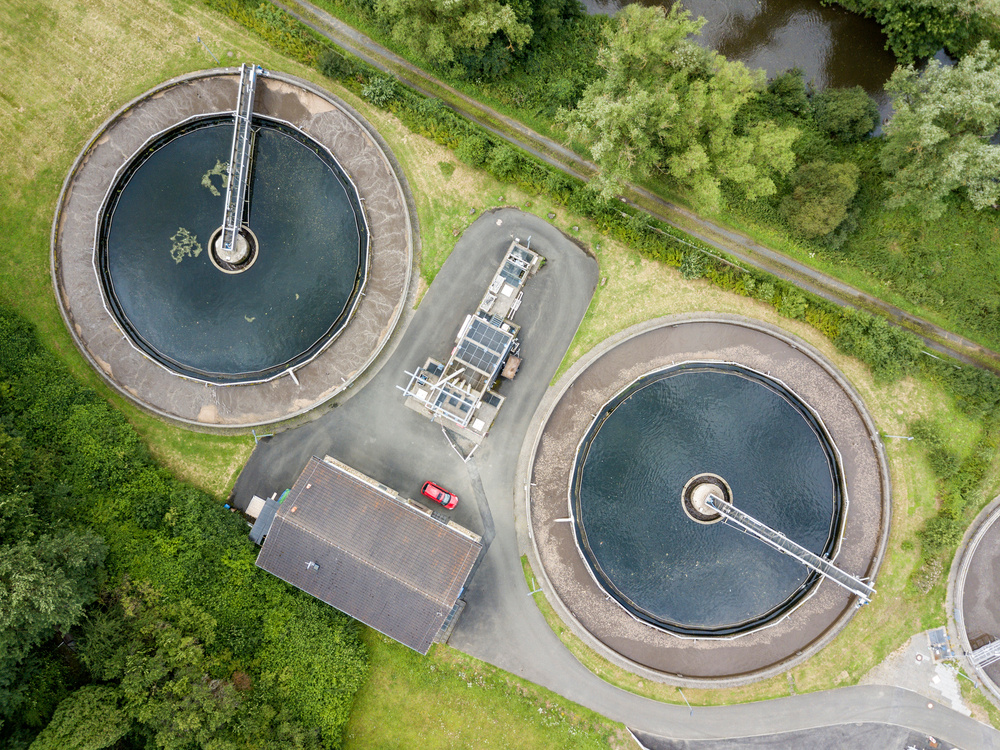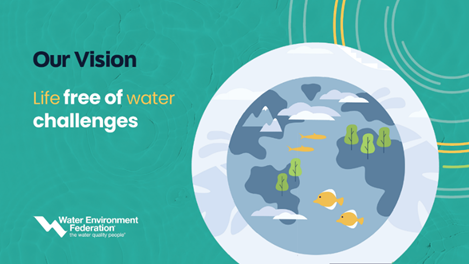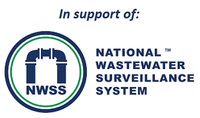2023
Wastewater Disease Surveillance Summit
Day at a Glance
Morning Session
8:30 a.m.
Welcome
John Person
8:45 a.m.
Implementation Case Studies
Presenters
Kaylyn Patterson
Reva Katz
Angellica Stanley
Gertjan Medema
Moderator
Anna Mehrotra
10:15 a.m.
BREAK
10:30 a.m.
PANEL DISCUSSION OF HURDLES & SOLUTIONS
Panelists
Sandy Buchner
Michelle Crum
Ryan Jepson
Rachel Poretsky
Lisa Thompson
Alex Yu
Moderator
John Person
Erin Morin (alternate)
DAy at a
glance
Sunday
12:00 p.m. - 1:00 p.m.
1:00 p.m. - 2:00 p.m.
October 1
Lunch
Own your own:
Click here for lunch ideas
Breakout Session
Deeper Dive into Hurdles
2:00 p.m.
Ethical Considerations
Presenters
Wydale Holmes
Govind Persad
Dan Lang
Colleen Naughton
Moderator
Cresten Mansfeldt
3:30 p.m.
HOT TOPICS
Presenters
Aaron Bivins
Kevin Oshima
Nancy Lin
Mats Leifels
Amy Pruden
Moderator
Lea Heberlein
Afternoon Session
3:15 p.m.
BREAK
4:50 p.m.
What’s Next for NWSS?
Amy Kirby
5:00 p.m.
Summit Adjourns
Lunch Options
There is a grab-n-go market across from registration downstairs, as well as some restaurants nearby. Click on the restaurant names below to be taken to the website
Lobby level of Hilton Chicago
Salads, starters, and classic American dishes such as burgers and steaks
Lobby level of Hilton Chicago
Traditional favorites like fish n’ chips, mac 'n' cheese and milk shakes
805 South State Street
Deep dish and thin crust pizza, salads, soup, pasta, and sandwiches
823 South State Street
Low-key tacos, fajitas, enchiladas and other classical Mexican fare

Speakers
Click on a speaker below to view their bio
Aaron Bivins
Dr. Bivins is an Assistant Professor in Louisiana State University’s Department of Civil & Environment Engineering. He is a public health engineer leading research at the intersection of microbiology, engineered systems, and human health. His research team seeks to characterize interactions between humans and microorganisms mediated by the built and natural environments using novel environmental microbiology and modeling techniques. His research activity builds on his professional experience designing and permitting various hydraulic infrastructure. Dr. Bivins completed his PhD and Master's Degree in Environmental Engineering at Georgia Tech. Prior to graduate school he worked as an engineer in Savannah, GA for five years after earning his Bachelor's Degree in Civil Engineering, also at Georgia Tech.
Sandy Buchner
Ms. Buchner graduated from Michigan State University with a BS in Biology & Chemistry. She began her laboratory career at Michigan State University where she worked as a lab assistant in several labs. After graduation she worked as a lab scientist for the State of Michigan’s Environmental Laboratory. She was employed by the state for 8 years and helped establish the states mobile laboratory to assist with field investigations. Ms. Buchner has been working in the laboratory at the Grand Rapids Water Resource Recovery Facility since 2005. She worked as a Chemist until she was promoted to Lab Superintendent in 2018.
Michelle Crum
Dr. Crum is currently Associate Professor in the Department of Medical Education, Interim Chair for the Department of Preventive Medicine and Population Health, and Administrative Lab Director for the Public Health Laboratory, all at the East Texas UT Tyler School of Medicine. She has experience in molecular biology, virology, and pandemic preparedness, and has designed and is co-course director of Invaders and Defense (Microbiology and Immunology) at the newly formed UT Tyler School of Medicine. Her interests include emerging and remerging disease, pandemic preparedness, response, mitigation and prevention, and the promotion of health literacy against these threats. In 2021, Dr. Crum began a wastewater surveillance program in 7 mostly rural counties of East Texas to detect and sequence SARS CoV-2 and other pathogens and is currently working to increase the scope of the project for utilization of disease forecasting.
Lea Heberlein
Dr. Heberlein has a Bachelor of Science Degree in Microbiology, a Master of Public Health Degree in Tropical and Communicable Diseases, and a Doctor in Public Health. She is employed by the Florida Department of Health, Bureau of Public Health Laboratories (BPHL) as the Virology Administrator, located in Tampa. She has over 27 years of experience in the public health laboratory. She supervises the virology unit in Tampa and serves as the lead virologist and subject matter expert for the BPHL including but not limited to testing for arboviruses, influenza viruses, other respiratory viruses, noroviruses, and measles virus.
Wydale Holmes
The Director of the Strategic Management and Innovation Office for the City of Tempe, AZ, Ms. Holmes oversees Tempe’s Wastewater BioIntel Program, an innovation to change the trajectory of community health at a local level with science, equity and trust. She leads the Strategic Management and Innovation Office to advance a city culture of innovation and sustain the focus on City Council priorities and the City’s Strategic Plan. The Office operationalizes innovation, manages change, and collaborates with City Council, community stakeholders, and city departments to advance organizational initiatives and a data-informed culture. Ms. Holmes is a Certified Public Manager with a Master’s Degree in Public Administration.
Ryan Jepson
Mr. Jepson is the Environmental Microbiology Manager at the State Hygienic Laboratory (SHL) which serves as the state of Iowa's public health and environmental laboratory. He has worked at SHL since 2008. Before moving to Environmental Microbiology, Mr. Jepson was the Clinical Microbiology Supervisor at SHL where he implemented testing for the Antimicrobial Resistance Laboratory Network and participated in the transition to whole-genome sequencing for PulseNet. He oversees microbiological testing of food and water in support of outbreak detection, FERN, Safe Drinking Water Act, and the National Wastewater Surveillance System.
Reva Katz
Ms. Katz is an epidemiologist with over 40 years of experience in public health. She led the public health efforts for 45% of Alaska's population as the Epidemiologist for the Municipality of Anchorage, where she also designed and created Anchorage's wastewater testing and disease surveillance program. Ms. Katz has worked in various roles in public health, including as an Accreditation Consultant for Beverly Health, Director of Patient Advocacy and Language Interpretive Services at the Grady Health System, and Director of Service Excellence at Emory University Medical-Dekalb Regional Health. She has also served as a Field Services Officer for Save the Children in Israel and Palestine, an Epidemic Intelligence Service Officer with the CDC, and the Disaster Field Training Officer for FEMA. Reva was educated at Georgia State University, New York University, Georgetown University, and the Hebrew University of Jerusalem. She currently resides in Alaska and enjoys the views of the Chugach mountains.
Amy Kirby
Dr. Kirby is the National Wastewater Surveillance System lead in the Division of Infectious Disease Readiness and Innovation at the U.S. Centers for Disease Control and Prevention. She brings more than 15 years of research experience in molecular microbiology to the task of building the first national, wastewater-based public health surveillance system in the U.S. Dr. Kirby earned a PhD in Microbiology at the University of Buffalo and an MPH in Epidemiology for Emory University.
Dan Lang
Mr. Lang is the Deputy Director of the Center for Environmental Health (CEH) in the New York State Department of Health (NYSDOH) and has worked in other leadership roles within CEH since joining NYSDOH in June 2017. He is a New York State Professional Geologist and has 30 years of experience in the environmental field, having worked as an environmental consultant for 25 years after receiving his Master’s Degree in Hydrogeology from Rensselaer Polytechnic Institute and a Bachelor’s degree in Environmental Science from the University of Rochester.
Mats Leifels
After a PhD on molecular methods to determine the integrity and infectivity of enteric viruses in complex water matrices in Environmental Virology from Ruhr-University Bochum, Germany, Dr. Leifels spent two years as a post-doctoral research fellow at the School of Public Health, University of Alberta in Edmonton, Canada, where he investigated the presence and persistence of enteric viruses in amoebae hosts. During this time, he became a fellow at the Water Institute, Gillings School of Global Public Health, at the University of North Carolina in Chapel Hill (NC), USA, where he worked with Profs Jamie Bartram and Mark Sobsey on practical applications of water, sanitation and hygiene (WaSH) interventions. In 2019, he relocated to the Singapore Centre for Environmental Life Sciences Engineering at Nanyang Technological University, Singapore. Since 2020, Dr. Leifels was actively involved in the establishment, validation, and operation of both Nanyang Technological University’s campus dormitory surveillance for SARS-CoV-2, as well as Singapore’s national wastewater-based surveillance efforts to monitor the emergence of potential variants of concern and overall pandemic trends in the City state. He is an Associated Editor for Water, Sanitation and Hygiene at Elsevier’s International Journal for Hygiene and Environmental Health, and active in the IWA specialist group “Health-related Water Microbiology” and “Diffuse Pollution”.
Nancy Lin
Dr. Lin is the Leader of the Biomaterials Group in the Biosystems and Biomaterials Division at the National Institute of Standards and Technology. Her research focuses on developing measurements and standards to enable detection, characterization, and quantification of microbes and microbial communities, with an emphasis on microbial cell reference materials development and characterization, biofilm-material interactions, antimicrobial efficacy, microbiome, and biosurveillance. Dr. Lin holds a BS in Mechanical Engineering from Valparaiso University and a PhD in Biomedical Engineering from Case Western Reserve University.
Cresten Mansfeldt
Dr. Mansfeldt is an Assistant Professor at the University of Colorado Boulder in the Civil, Environmental, and Architectural Engineering Department and Environmental Engineering Program. He leads the Creative-Microbial Bio Maintenance for Greener Environments and Municipalities (CMBM-GEM) research group, with active projects in tracing the fingerprint of the built environment biome in natural waters, tracing biomarkers of hazard exposure and disease, and predicting the ecological risk associated with new synthetic microorganisms. Overall, his work combines molecular characterization, machine learning, and reactor development to better understand and ethically collaborate with our built microbiome.
Gertjan Medema
Prof. dr. Medema is principal microbiologist at KWR Water Research Institute in the Netherlands, where he is director of KWR’s WHO collaborating centre on Water Quality & Health and advisor to the WHO and EU on water safety. He is professor of Water & Health at Delft University of Technology and his main area of expertise is detection methods, transmission, risk assessment and epidemiology of waterborne pathogens. He is one of the leading researchers in sewage surveillance of SARS-CoV-2 and has been working on this worldwide.
Anna Mehrotra
Dr. Mehrotra is the Director of the Wastewater Surveillance Program at the Water Environment Federation. Building on more than 20 years of experience in the wastewater sector, she oversees training, communities of practice, pilot testing, and other activities focused on supporting wastewater utilities participating in wastewater-based disease surveillance programs. Dr. Mehrotra is a licensed professional environmental engineer with a PhD in civil and environmental engineering from UC Berkeley.
Erin Morin
Ms. Morin is an environmental health specialist at the Association of Public Health Laboratories (APHL), focusing mainly on wastewater surveillance. After receiving her bachelor’s degree from Gettysburg College in 2017, she worked in a water testing laboratory for a year before entering into graduate school. In 2019, Ms. Morin earned a Master’s Degree in Environmental Health from the Johns Hopkins Bloomberg School of Public Health. She has been at APHL ever since, starting as an associate specialist, focusing on biomonitoring and laboratory response before being promoted to her current role.
Colleen Naughton
Dr. Naughton is an Assistant Professor in Civil and Environmental Engineering at the University of California Merced. Her lab co-designs sustainable Food-Energy-Water Systems for and with the UnderServed (FEWS-US). Dr. Naughton created the @COVIDPoops19 global wastewater monitoring dashboard (https://arcg.is/1aummW). She is a co-lead of the Healthy Central Valley Together project (https://healthycvtogether.org/), monitoring wastewater for pathogens in California’s Central Valley. Dr. Naughton was an American Association for the Advancement of Science (AAAS) Science and Technology Policy Fellow, a Returned Peace Corps Volunteer in Mali, and University of South Florida (MS and PhD), and Purdue (BS) alumni in Civil Engineering.
Smiti Nepal
Ms. Nepal joined EPA’s Office of Wastewater Management in 2016 with a focus on water reuse, nutrient removal and recovery technologies, wastewater-based surveillance for Covid-19, and emerging contaminants. Before EPA, she worked with the Maryland Department of the Environment on solid waste landfill design review and permitting. Ms. Nepal also worked with a consulting firm designing components of wastewater treatment plants. She received her Bachelor of Science in Environmental Engineering and Master of Science in Systems and Ecological Engineering from the University of Florida. She also has her professional engineering license from the State of Maryland.
Kevin Oshima
Dr. Oshima has worked for the U.S. EPA since 2005 and currently is the Director of the Watershed and Ecosystem Characterization Division (WECD) in ORD’s Center for Environmental Measurement and Modeling. His area of expertise is in virology/microbiology and he has done research on waterborne microbial pathogens especially in the area of recreational water quality with extensive experience in the development of microbial methods. WECD conducts research to advance EPA’s ability to characterize the presence, transport, sources, and impacts of contaminants in watersheds.
Kaylyn Patterson
Ms. Patterson is an Associate Environmental Microbiologist at the Metropolitan Water Reclamation District of Greater Chicago (MWRD). She is primarily responsible for supervising MWRD’s bacterial analysis for water and biosolid monitoring programs. She also ensures the microbiology laboratory continues to maintain and comply with the Drinking Water Certification standards set by the Illinois Department of Public Health. Ms. Patterson started MWRD’s Sewage Surveillance project coordination in March 2020 and has continued leading MWRD’s surveillance participation by establishing partnerships with universities, public health agencies, and laboratories.
Govind Persad
Dr. Persad, JD, PhD, is an associate professor at the University of Denver Sturm College of Law. His research applies bioethical and distributive justice frameworks to law in order to address longstanding and new problems at the interface of health law and policy, including drug pricing and the allocation of scarce medical resources. His recent writing appears in law reviews, such as the Iowa Law Review, William and Mary Law Review, and Emory Law Journal, as well as medical and scientific journals including the New England Journal of Medicine, Science, JAMA, and the Lancet.
John Person
Mr. Person is currently the State, Territorial, Local, and Tribal Support Lead for the CDC’s National Wastewater Surveillance System (NWSS). He has been involved with NWSS since late 2020 where he has helped develop many aspects of the program including establishing the STLT support team. Previously, Mr. Person worked for the Waterborne Disease Prevention Branch and the Louisiana Department of Health as an epidemiologist. He earned his MPH from the Louisiana State University School of Public Health.
Rachel Poretsky
Dr. Poretsky researches microbial ecology, diversity, community structure and interactions in aquatic environments. She has done pioneering work looking at genes and gene expression of microbial communities in the open ocean, freshwater lakes and rivers, and wastewater. She is currently the scientific lead for the Chicago’s and Illinois’ current wastewater surveillance efforts where she partners with the Discovery Partners Institute, Argonne National Laboratory, Northwestern University, Rush University Medical Center, and the Chicago and Illinois Departments of Public Health. In 2021, her lab was designated a Ceres Nanosciences Wastewater Epidemiology Center of Excellence.
Amy Pruden
Dr. Pruden is the W. Thomas Rice Professor and University Distinguished Professor in the Department of Civil and Environmental Engineering at Virginia Tech. She earned her BS in Biological Sciences (1997) and her PhD (2002) in Environmental Science, both at the University of Cincinnati. Her research and teaching focus on bringing a microbial ecological perspective to advancing control of pathogens and antibiotic resistance in the design and management of water, wastewater, and recycled water systems. Dr. Pruden is the recent recipient of the Water Research Foundation Research Innovation Award.
Angellica Stanley
In 2020, Ms. Stanley joined the Wisconsin State Laboratory of Hygiene Covid in Wastewater Project. Our team processed samples from approximately 50 wastewater treatment plants, along with a handful of dorms and other localized sites. There she was part of a team that focused on method development as well as experimental variability. In early 2023, Ms. Stanley relocated to the Minnesota Department of Health - Public Health Laboratory as the Wastewater Surveillance Project Lead, where she has been working towards improving and expanding the state’s current wastewater surveillance program. Ms. Stanley has set goals to expand the targets beyond COIVD and begin pilot tests at alternative testing sites that include correctional facilities, long term care facilities and sovereign nations.
Lisa Thompson
Dr. Thompson is the Chief Scientist of the Sacramento Area Sewer District, which serves 1.6 million people in Sacramento County, California, and surrounding areas. She leads and supports the district’s efforts regarding compliance with permit-related studies and engagement in Sacramento-San Joaquin River Delta research. Dr. Thompson serves as a technical resource for scientific research needs for the district, including wastewater-based epidemiology efforts. She holds a Bachelor of Science in Zoology, a Master of Science in Biology, and a Doctorate in Zoology.
Alexander Yu
Dr. Yu is an Infectious Diseases physician and serves as Chief of the Surveillance Section in the Division of Communicable Disease Control at the California Department of Public Health. He provides clinical care at San Mateo County Medical Center and holds an adjunct clinical faculty appointment at Stanford University. Dr. Yu completed Infectious Diseases fellowship training at Stanford University, Internal Medicine residency at Massachusetts General Hospital, and his Masters in Public Health at Harvard University.
SUMMIT SAFETY & SECURITY
Location: Hilton Chicago,
720 S Michigan Ave, Chicago, IL 60605
Phone: (312) 922-4400
The Hilton Chicago has the ability to alert all guests via public address system in the event of an emergency/evacuation.
EMERGENCY NUMBER: “55” from any house telephone or 911 from any phone.
Emergency Power
The Hilton Chicago has an emergency generator for designated lighting and power systems and equipment.
Security
Security features include:
- Electronic locks, with secondary locking devices for entry and connecting doors.
- Entry door viewer.
- Self-closing guestroom entry door.
- 24-hour in house security officers, which all are Certified Lodging Security Officer and CPR First Aid certified.
- Security cameras are provided in some public areas.
- The 24-hour security, extension is 4353 from any house phone.
- Security cameras are provided in some public areas.
Fire Protection
- The Hilton Chicago has a sprinkler system as well as smoke detectors throughout.
- The closest fire station is Station 419 S Wells, Chicago, IL, less than one1 mile away.
- The Hilton Chicago meets “Hotel & Motel Fire Safety Act of 1990”.
- Fire drills are conducted at least semi-annually involving all team members.
- The fire alarm system includes one-way communication to all floors and guest rooms.
Medical
- Local Hospital is: Northwestern Hospital at, 233 East Superior, Chicago, IL., approximately 2.5 miles away.
- There is CPR and First Aid certified personnel on every shift.
- The nearest 24-Hour Pharmacy is Walgreens at , 501 W Roosevelt Rd, Chicago, IL
- The nearest Urgent Care facility is at 811 S. State Chicago, Il. 60605 and can be reached at 312.566.9510.
SMALL GROUP DISCUSSION TOPICS
We will break up into 17 tables (in person) and 17 breakout rooms (online) for small group discussions during the first hour after lunch. You will have a chance to discuss 2 of the topics below. If you are attending in person, please sign up for your 2 topics by writing your name on the sign-in sheet on the tables with the numbers corresponding to your topics of interest. If you are attending online, you’ll be able to join the breakout rooms with the numbers corresponding to your topics of interest.
- How can programs be efficiently managed with limited resources?
- How can support be extended to jurisdictions that lack NWSS funding?
- How can we enhance coordination among health departments, labs, and utilities for more effective communication?
- How can we more seamlessly integrate wastewater surveillance data with clinical data?
- How can we secure funding for local health departments?
- What approaches can be adopted to ensure wastewater data generate actionable insights?
- What are effective ways to convey the value of wastewater surveillance?
- What are your thoughts on the NWSS commercial testing contract, and what improvements can be suggested?
- What considerations should be considered when managing new targets in terms of lab analysis?
- What criteria should guide the selection of new wastewater surveillance targets?
- What ethical concerns, such as equity and privacy, need to be addressed, and what solutions can be applied?
- What factors should be considered when managing new targets in terms of communicating risks associated with them?
- What guidance can be offered to jurisdictions that are in the initial stages of setting up their programs?
- What methods can be employed to encourage participation from various stakeholders in program initiation, especially without a mandate?
- What methods can be employed to ensure nationwide comparability of wastewater data?
- What strategies can be used to maintain stakeholder engagement and ensure program sustainability? What does sustaining the program entail?
- What strategies can we employ to establish standardized lab methods?
Self-Guided Tour in
WEFTEC Exhibit Hall
The Exhibition at WEFTEC showcases more than 800 industry-leading providers of products, services, and technologies in the water quality field. Some of these providers are relevant to wastewater-based disease surveillance The agenda below highlights vendor booths in the Exhibit Hall that are relevant to the sample collection, lab analysis, and data analytics steps of wastewater surveillance. Each vendor has a booth number associated with it and the map of the Exhibit Hall is available here. Click on vendor names for more information. Note that the inclusion of a vendor name in this list does not mean that WEF necessarily endorses the use of this provider’s products for your wastewater surveillance program.

Step 1: Sample Collection
Endress-Hauser: South Building, Booth 654
Hach: South Building, Booth 1014
Teledyne: South Building, Booth 1416
Xylem: South Building, Booths 1408 & 1605
Step 2: Lab Analysis
Biobot: North Building, Booth 8051
Hach: South Building, Booth 1014
Luminultra: South Building, Booth 835
Step 3: Data Analytics
Aquasight: South Building, Booth 4618
Kando: South Building, Booth 4321
Trinnex: North Building, Booth 8151
WEF VISION & CORE VALUES
WEF’s Vision: Life free of water challenges
WEF’s Core Values:
- Lead boldly with purpose and agility
- Focus on our customers through empathy and service
- Collaborate for collective impact
- Integrate diversity, equity, and inclusion in all we do
For more information about WEF’s new strategic plan, please visit: https://www.wefwaterfuture.org/.



